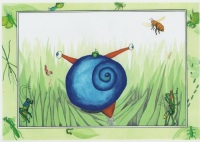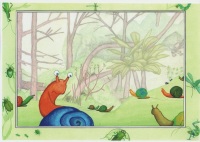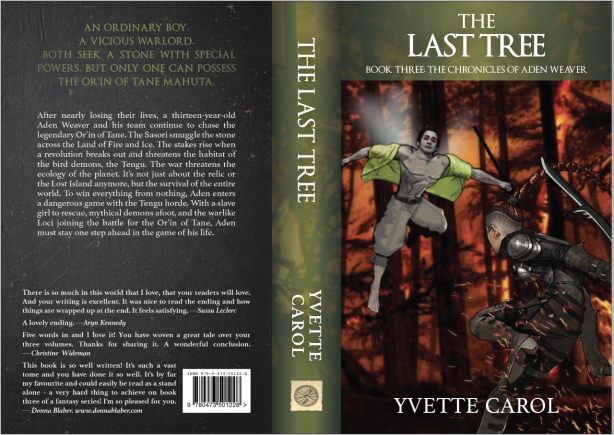I have finished reading my nineteenth novel for 2021, The Witch of Blackbird Pond, by Elizabeth George Speare. Friend, fellow blogger, and poet Susan Baury Rouchard sent me this book, one of her all-time favourites. I had never heard of it or the author, so this was a terrific opportunity. Now that I have finished The Witch of Blackbird Pond, I can see why it came so highly recommended. Thanks, Susan.
Historical fiction is a rich, rewarding genre. The Witch of Blackbird Pond is a young adult novel set in the late 1600s in New England in a society of Puritans. There are so many ways it could have gone wrong, yet Speare never wavers, never falters for a minute. She weaves the depictions of Connecticut and the traditions, the daily chores of the people into the story fabric in a way that makes everything seem real. Fascinating stuff. I almost wondered if the author was born in that era. But no, she published the book in 1958. No wonder this book won the Newbery Medal (1959) and was a Vermont Golden Dome Book Award Nominee (1960).
The story starts, and we are on board the boat, The Dolphin. Kit is fleeing her past in Barbados. She meets two young men: Nathaniel “Nat” Eaton, son of the vessel’s captain, and John Holbrook, a clergyman headed to study with a reverend. Kit’s unexpected arrival in the fictional New England town of Wethersfield and the home of her Aunt Rachel truly upsets the applecart. Kit has only known the free-spirited way of living that she has always embraced in Barbados. She comes from wealth and all the associated privileges of having slaves and owning the finest wardrobe, part of which has traveled with her to virtual poverty in seven trunks. The clash of cultures and lifestyles which follows is powerful, yet never rushed.
Kit knows nothing of the customs that guide New England. She flaps painfully, a fish out of water. As the pampered granddaughter of the most wealthy man in Barbados, she has no idea how to work or do the basic, daily things. We feel sorry for her innocence and yet see her flaws: her sense of entitlement, her lack of stamina for working. We empathize with the pain Kit goes through.
Her grandfather raised Kit with a lot of freedom. He taught her how to read and write, how to swim. All of these things are enough to cast suspicion on the naive girl from Barbados from the start.
‘She feels like a tropical bird that has flown to the wrong part of the world, a bird that is now caged and lonely.’
Used to doing as she pleases each day, Kit soon learns her new family expects her to work every day, all day, and to attend Sabbath Meetings which last nearly an entire day. Kit despairs at the boring services but gains the attention of staid William Ashby, a wealthy young suitor, the most eligible bachelor in town. He is her only possible hope of leaving the house of her severe Uncle Matthew.
We follow poor Kit’s painful adjustment process to the constrictions, the rules of the puritan community, and her uncle’s hard-working household. We see that William Ashby is patently unsuited as a husband. We feel bad that all three girls in the house have their hearts set on the wrong men.
Kit, sore, suffering, lonely, one day discovers the meadow.
‘As they came out from the shelter of the trees and the Great Meadows stretched before them, Kit caught her breath. She had not expected anything like this. From the first moment, in a way she could never explain, the Meadows claimed her and made her their own.’
You feel the healing balm of the moment because Kit has suffered so believably up to this point. It is a piece of prose I read and reread a few times.
In the meadow, Kit meets and is comforted by Hannah Tupper. She learns that the woman is no witch. She is a Quaker, a widow, persecuted in Massachusetts for her religious beliefs. Kit and Hannah become friends with Kit finding ways to visit often, sometimes running into Nat Eaton, who also happens to be a friend to Hannah Tupper.
When a terrible sickness grips Weathersfield, the finger gets pointed at Kit. She gets accused of witchcraft. Who do you think swoops in to save her?
People might call this sort of storytelling “old school,” but I found myself magnetized from the first page, and I couldn’t wait to pick it up and keep reading every time I had to walk away. That’s all you need to know, right there. The ultimate litmus test.
The backdrop of the tension between the English colonists and the New England Men’s fight for independence makes for a dramatic setting. I admired Speare’s tight storytelling. The political drama mirrors and therefore deepens the struggle for Kit between her free rebellious spirit and conforming to what society expects of her. Similarly, the seasons each take their turn. Each season corresponds and mirrors the turbulent journey of Kit’s first year in Connecticut, ending with the dramatic climax when they accuse Kit of witchcraft in the deep, bitter heart of winter. But the book finishes with the return of spring, which I loved. It’s such a clever, complex tale about the conflict between freedom and responsibility, between individual and family/community. A book about the search for identity versus belonging, conforming, and then breaking social rules. Tough, soft, affecting, resonant.
All in all, a cracking read.
Elizabeth George Speare, 1908 – 1994, was born in Melrose, Massachusetts. As well as earning the Newbery Medal for The Witch of Blackbird Pond, she also received the 1962 Newbery Medal for The Bronze Bow. Speare received a Newbery Honor Award in 1983, and in 1989 she was presented with the Laura Ingalls Wilder Award for her substantial and enduring contribution to children’s literature.
My rating: Four and a half out of five stars.
Talk to you later.
Keep reading!
Yvette Carol
*
“Though I had my first historical novel almost by accident it soon proved to be an absorbing hobby.” ~ Elizabeth George Speare
*
Subscribe to my newsletter by emailing me with “Newsletter Subscription” in the






















Reblogged this on OPENED HERE >> https:/BOOKS.ESLARN-NET.DE.
LikeLiked by 2 people
Thanks, Michael!
LikeLiked by 1 person
Elizabeth Speare sounds like a great writer. And as for ‘old school’ writing, if it is good and keeps you turning the page, that’s what matters.
LikeLiked by 2 people
You’ve got a great point, Vivienne. And if it’s good then it’s timeless.
LikeLiked by 1 person
Sounds like a wonderful read. Your reviews are always so appealing, Yvette. Thank you for sharing.
LikeLiked by 1 person
Thanks for another great review! Appreciate reviewers a lot. They help me with my TBR list.
LikeLiked by 1 person
Thank you Yvette for this incredible review on the book I sent you. Sorry I didn’t see it last year.
LikeLiked by 1 person
My pleasure, Susan! At least you found it now. I’m glad to know you have read it. What a great book. Thank you.
LikeLike